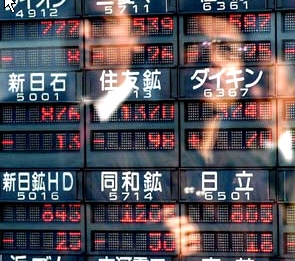Written by AXA Group Chief Economist and AXA IM Head of Research, Gilles Moëc
As well as being a tragedy for the local population and the sombre geopolitical ramifications, the war in Ukraine is likely to have a significant impact on the European economy, jeopardising its recovery just as it was finally extricating itself from the pandemic.
Inflation was already rebounding on the back of supply line disruptions, but the shock to energy prices is exacerbating the impact on household purchasing power, reflected in the steep decline in consumer confidence and – at least in some countries – an actual reduction in spending.
Governments are responding to this challenge by launching yet another fiscal stimulus – exceeding 1% of GDP in each of the four biggest member states of the Euro area – but there is a risk that the ‘growth emergency’ could incentivise governments to postpone necessary, albeit transitorily painful, decisions on the decarbonisation of our economies.
Below are the key ESG challenges that have arisen from the war in Ukraine.
Nuclear power
The most obvious takeaway from the current crisis is that any discussion on the right pathway for our energy mix needs to consider how the non-negotiable net zero target by 2050 intertwines with energy security and social cohesion.
If security concerns exclusively dominate the equation, there is a risk that any quick-fix type solutions – such as replacing Russian gas with liquified natural gas from the US or Qatar – turn into permanent ones.
While some quick fixes are necessary given the urgency of the sanctions, they must however be carefully integrated into a wider strategy. A broader shift towards renewables is needed – which may call for an enlargement of the European Union (EU)’s Next Generation funding capacity – but the crisis is also putting the issue of nuclear power back on the table.
The EU has yet to finalise its position on this crucial aspect in its taxonomy, but in the current race to replace Russian oil and gas, one of the most understated elements of last year’s influential International Energy Agency report should be meditated – in the agency’s pathway towards net zero, a rise in the contribution from nuclear power was necessary.
The Just Transition
For investors, this means that their environmental, social and governance (ESG) strategy must become even more granular – but they also need to step up their capacity to look at both the ‘E’ and ‘S’ pillar together.
The issue of the ‘Just Transition’ is taking more prominence in the context of rapidly rising energy prices. This was always going to happen under any realistic transition to net zero, but with consumers facing double-digit rises in electricity prices, it is becoming very real, very quickly.
Moreover, the disruption of grain and fertilisers supply is triggering a rise in food prices with visible consequences for developing countries, and the poorest in the developed nations.
How the social dimension of the transition is taken on board by investees is going to be a point of focus in the years ahead. This applies to corporates, but also – and possibly more crucially – to sovereigns.
The ESG assessment of state issuers is still in its infancy, for lack of a common and detailed enough approach in the financial industry, but a key ingredient should be how they manage the distributive effect of the transition policies they implement. Without a fair sharing of the burden of making our economies sustainable, the democratic acceptance of fighting climate change – which in many countries is still quite fresh, or shaky – will wane.
Crypto and defence spending
The Ukraine war will also force investors to look at cryptocurrencies from an ESG point of view. So far, it’s usually the environment-harming aspects which have been explored (many cryptos take an inordinate quantum of energy to be mined). But the capacity of these currencies to evade scrutiny – and international sanctions in particular – should call for attention.
But there is another issue which calls for more granularity in ESG strategies – how we look at weapons. Full exclusion of businesses involved in the defence sector has been a common practice among many ESG investors. While there is of course no reason to look through the development and production of controversial weapons – on which there are fairly widely accepted standards in the financial industry – businesses enhancing the capacity of countries to defend themselves against aggression may not be contradictory with sustainable investment.





